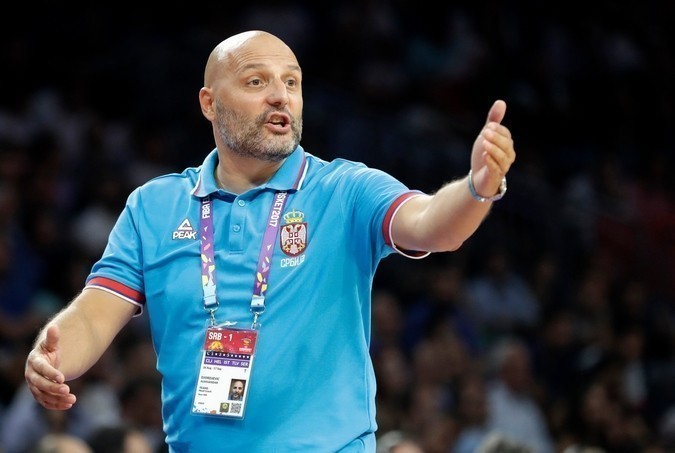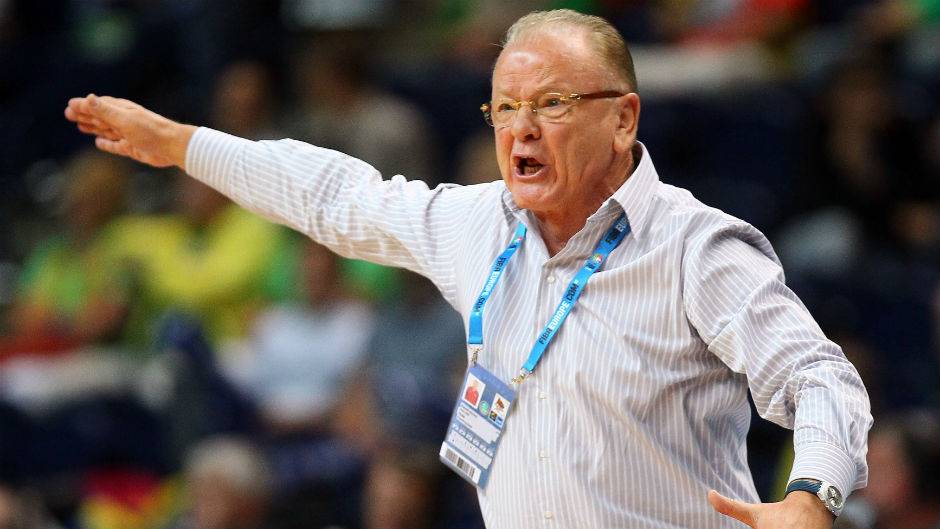Serbia men's national basketball team

2014-2017
Đorđević led the team to three silver medals at the 2014 FIBA World Championship[10] the 2016 Summer Olympics and the 2017 EuroBasket.
2009-2013
A new generation led by legendary Dušan Ivković returned some of the old glory by taking the silver medal in Eurobasket 2009, and fourth place in the 2010 FIBA World Championship, with the youngest team.[9] However, the national team failed to reach the semifinals at the EuroBasket 2011 and EuroBasket 2013, thus way failing to qualify for the 2012 Summer Olympics, missing second Olympics…
2008
Also, it failed to qualify for the 2008 Summer Olympics, missing the Olympics for the first time after being suspended at the 1992 Summer Olympics.
2007
Following the dissolution of the state union of Serbia and Montenegro, national team participated at the EuroBasket 2007 and finished the competition in the group stage with three close losses.
2006
The national team participated at the 2006 FIBA World Championship on a wild card due to the results in the past, on initiative by FIBA prominent administrator Borislav Stanković. However, the national team of Serbia and Montenegro once again failed to impress and finished in 9th place. On 21 May 2006, Montenegrins voted in an independence referendum, with 55.5% supporting…
2005
After two consecutive tournament disappointments, hope for the comeback came at the EuroBasket 2005 where the national team of Serbia and Montenegro was a host nation. Also, legendary Željko Obradović became national head coach again. However, the national team was surprisingly eliminated in the play-off stage by France with 71–74 loss, and finished in 9th place. Obradović stepped down shortly after…
2004
The national team participated at the 2004 FIBA Diamond Ball where it won the gold medal.
2003
In 2002, FR Yugoslavia consisted of Serbia and Montenegro, came to a new agreement regarding continued co-operation, which, among other changes, promised the end of the name Yugoslavia, since they were part of the Federal Republic of Yugoslavia. On 4 February 2003, the federal assembly of Yugoslavia created a loose state union—the State Union of Serbia and Montenegro.…
2002
One of the most notable wins of the Yugoslavian national team came in the quarter-finals of the 2002 FIBA World Championship, when the host nation of the tournament United States was eliminated with 81–78.[7] The significance of the win was tremendous for the Serbian people in general, as the public in Serbia perceived the United States political leadership responsible…
2001
The national team won the gold medal at the EuroBasket 2001.
1999
The national team won the bronze medal at the EuroBasket 1999.
1998
The national team won the gold medal at the 1998 FIBA World Championship.
1997
The national team won the gold medal at the EuroBasket 1997.
1996
At the 1996 Summer Olympics the team lost with 69–95 to the United States in gold-medal game.
1995
Without much sponsorship of war-impoverished country, the national team made its comeback to the international scene at the EuroBasket 1995 in Greece, where the national team won the gold medal after defeating Lithuania in gold-medal game.
1992-1994
In 1992, FR Yugoslavia was established, as the federation of two remaining Yugoslav republics Serbia and Montenegro. Newly established country had less than half the population of former country. The Basketball Federation of FR Yugoslavia became the governing body of basketball in new country. After the adoption of UNSCR 757, the national team was suspended from participating in international tournaments.…
1991
With the start of Yugoslav Wars in 1991 and later subsequent breakup of Yugoslavia, the mighty team of Yugoslavia was disbanded. The players were selected from the population of over 23 million people and basketball infrastructure evenly distributed all over the six states which formed the Socialist Federal Republic of Yugoslavia.


